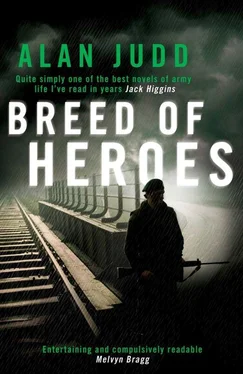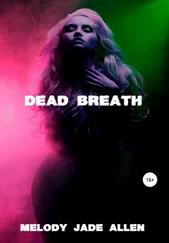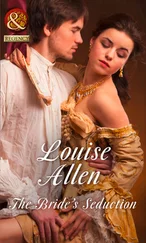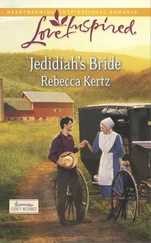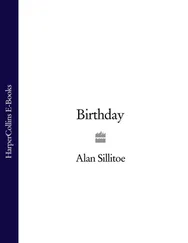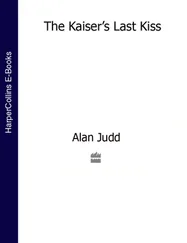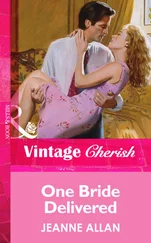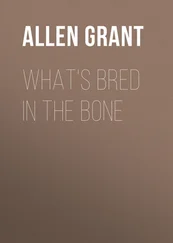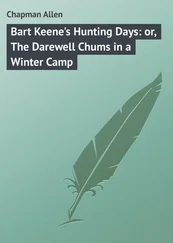Alan Judd - A Breed of Heroes
Здесь есть возможность читать онлайн «Alan Judd - A Breed of Heroes» весь текст электронной книги совершенно бесплатно (целиком полную версию без сокращений). В некоторых случаях можно слушать аудио, скачать через торрент в формате fb2 и присутствует краткое содержание. Год выпуска: 2011, ISBN: 2011, Издательство: Simon & Schuster UK, Жанр: Современная проза, на английском языке. Описание произведения, (предисловие) а так же отзывы посетителей доступны на портале библиотеки ЛибКат.
- Название:A Breed of Heroes
- Автор:
- Издательство:Simon & Schuster UK
- Жанр:
- Год:2011
- ISBN:9781847397720
- Рейтинг книги:3 / 5. Голосов: 1
-
Избранное:Добавить в избранное
- Отзывы:
-
Ваша оценка:
- 60
- 1
- 2
- 3
- 4
- 5
A Breed of Heroes: краткое содержание, описание и аннотация
Предлагаем к чтению аннотацию, описание, краткое содержание или предисловие (зависит от того, что написал сам автор книги «A Breed of Heroes»). Если вы не нашли необходимую информацию о книге — напишите в комментариях, мы постараемся отыскать её.
Alan Judd tells Thoroughgood’s tale with verve, compassion and humour. The result is an exceptionally fine novel which blends bitter human incident with army farce.
A Breed of Heroes — читать онлайн бесплатно полную книгу (весь текст) целиком
Ниже представлен текст книги, разбитый по страницам. Система сохранения места последней прочитанной страницы, позволяет с удобством читать онлайн бесплатно книгу «A Breed of Heroes», без необходимости каждый раз заново искать на чём Вы остановились. Поставьте закладку, и сможете в любой момент перейти на страницу, на которой закончили чтение.
Интервал:
Закладка:
There was no time for Charles to consider running away, or not moving, which was his most natural inclination. It was clearly a lunatic escapade but he felt himself in the grip of a collective madness. The CO had already started to run and Charles could not afford to be seen by the others to hesitate. He sprinted along the rubble-strewn pavement towards the conflagration, keeping as close to the wall as possible. It was a hectic, unthinking dash, though at one point when he realised that he was ahead of the others he had the presence of mind to slow down. He kept stumbling on the rubble and several times lurched against the wall, once grazing his cheek. Very soon he was upon the burning bus and the heat hit his face like a prolonged slap. He had no idea what he would do when he got there. The flames had blackened the wall at each side and, though they were not constantly on it, they were continually licking it as though the fire at the centre of the bus were breathing rapidly. Charles hesitated and was pushed roughly aside by the CO who bellowed ‘Charge!’ and ran into the flames by the wall. He disappeared and Charles followed blindly. There was a moment of intense heat and then he was through. Facing him was a narrow crossroads and a lot of people, who began to run away as soon as they saw the CO. The CO, still yelling, ran after them. Charles followed and even heard himself yelling something incoherent. At the same time a small part of himself felt sufficiently detached to consider the spectacle of the rest of himself following an apparently demented, bellowing middle-aged man after a crowd of people along an Irish street. Fortunately, the CO stopped on the far side of the junction to grapple with a struggling youth, whom he held by the hair. After a couple of seconds he pushed him into Charles, shouting, ‘Arrest him!’ and ran on. Charles and the youth looked at each other, both panting, before the youth ran off.
For a while there was confusion, with people running in all directions across the junction. There was a lot of shouting. Two youths had been arrested by the RSM’s group and were being frogmarched back towards the burning bus. Very soon there were more soldiers than civilians visible, and the mob retreated down the side roads, leaving the junction to the Army. It took Charles some minutes to realise that they were being stoned from somewhere in the darkness, and he ran, ducking, to a large gate in the wall where there were several other soldiers. Inside was a large yard and parked in it was the petrol tanker. Beside it were a lot of milk bottles, some empty and some half filled with petrol and with rags hanging out of them. The CO and his Rover Group were examining them.
‘Caught ’em at it,’ the CO was saying. ‘They were still filling the things when I got here. Got away over the wall, the little buggers. At least they haven’t made a bomb out of the lorry yet.’
The burning bus was perilously close and the heat could be felt in the yard, so it was decided that moving the bus was the first priority. Charles was trying to hear how this was to be done when he was accosted by the RSM, who was flustered and breathless. ‘Journalists in the Falls. Will you get up and deal with them?’
His tone could hardly have been more urgent if he had been announcing the presence of Russian tanks, nor less respectful if he were talking to a newly-joined private. Charles looked at him before replying, as though to see if there was something he had misunderstood. ‘Thank you, Mr Bone.’
‘Can you get up there right away? They could be dangerous.’
‘Don’t worry about them, Mr Bone. They’ll be all right.’ The RSM looked at Charles as though he thought him mad, then turned away without a word. Charles delayed his departure from the yard for a while, and then sauntered out with careful nonchalance. He then ran across the junction towards the bus, which was no longer burning as fiercely. He had almost reached it when there was the sound of breaking glass behind him, followed by a sudden whoosh and a scorching heat up the side of his right leg. He crouched against the nearest wall, clutching his leg, which he found not to be burnt, and looked round to see a pool of fire flaring in the middle of the junction. The flames quickly died, revealing more broken glass, and he realised it had been a petrol bomb. A couple of yards from him a soldier pointed his rubber-bullet gun down one of the side streets and fired. For a moment the flash and the bang were even more alarming than the petrol bomb. Charles could not see what he had fired at, nor whether there was any result. ‘Did you hit him?’ he asked.
The soldier shook his head. ‘Just making sure they keep their distance,’ he said.
It was now possible to get between the bus and the wall without danger. On the other side the sense of urgency and danger diminished sharply. Two of A company’s Land-Rovers were parked on the pavement and several soldiers stood leaning against them, talking and gazing reflectively at the almost-gutted bus. An armoured water-cannon — a great lumbering vehicle that Charles had heard about but not seen — began dowsing the flames. Up on the Falls there were more soldiers, including two of B company’s platoons, but little activity. One of the A company Pigs had taken prisoners back to battalion HG and three more prisoners were being loaded into another one. Beside it, a fourth figure was spread-eagled against the wall and was being searched by two soldiers. Charles was about to pass by when he recognised the figure as Beazely’s. For a brief moment he considered passing by none the less but something got the better of him. ‘What have you done?’ he asked.
Beazely turned his head cautiously, just enough to see over his shoulder. ‘Thank Christ it’s you. Tell them who I am.’
‘Haven’t you?’
‘Yes, but I’ve lost my bloody card. My press card. My lifeline. I know I had it on me when I came out. They won’t believe me.’
‘We found him in the alley,’ said one of the soldiers. ‘It looked like he was hiding. He was behaving suspiciously. We thought he might be a petrol bomber.’
‘I was hiding,’ said Beazely, without a trace of petulance. ‘I was hiding from the petrol bombs.’
‘There weren’t any up here.’
‘Well, how was I to know that?’
‘What made you think there were?’
‘I heard an explosion.’
‘Rubber-bullet gun.’
Charles was enjoying himself but felt he shouldn’t be. Beazely was still spread-eagled against the wall, his head bowed. ‘Is he all right then, sir?’ asked one of the soldiers. ‘Can we leave him with you?’
Charles continued to look thoughtfully at Beazely.
‘We did search him, sir. He was clean.’
‘All right. Leave him with me.’ The two soldiers left. ‘You can move now if you like,’ added Charles, after a while.
Beazely straightened himself, though not without looking cautiously around, and rubbed his hands slowly. He looked towards Albert Street, from which bangs and shouts were becoming more frequent. ‘I thought I’d had it when they got me. I thought that was it. Up against a wall and shot as a spy. What’s going on down there?’
‘Just a riot.’
‘Oh Christ.’ Beazely’s fat red face wrinkled in distress and he took off his glasses and wiped them. ‘What the hell am I doing here?’ he murmured, sounding near to tears. ‘What the hell is anyone doing here? Why don’t they all go home so we could just do local boy stories and council meetings? What’s all this fighting going to do for anyone?’
He replaced his glasses awkwardly and they both stared at a sudden increase of activity on the Falls. A huge digger, or lifter or crusher — it was not clear what it was — was making for the bus in Albert Street. It was a famous and much-loved vehicle known throughout the Army in West Belfast as Scoopy-do. It had vast wheels, jaws at each end and made an impressive noise. It was driven by a diminutive, pale-faced Sapper armed with a Sterling, looking for all the world like a chirpy sparrow on the back of a dinosaur. Charles and Beazely followed it to the top of Albert Street. The burning bus had been extinguished. Its charred and twisted skeleton smoked and hissed. The nearby walls were thoroughly blackened and the roads were very wet. With a great revving in its belly and a lowering of one set of jaws, Scoopy-do charged the bus. It hit it at one end and pushed it round in the street with a maddening screech and scream of protesting metal until there was a large enough gap for a waiting Pig to pass through. But the Pig continued to wait, respectfully it seemed, until Scoopy-do had disengaged from its victim and then itself proceeded through the gap. On the other side of the junction below the bus figures could be seen moving against the light of petrol bombs. A bevy of photographers, cameramen and reporters was following the Pig and Scoopy-do down the street. ‘I’d better go down there,’ Charles said.
Читать дальшеИнтервал:
Закладка:
Похожие книги на «A Breed of Heroes»
Представляем Вашему вниманию похожие книги на «A Breed of Heroes» списком для выбора. Мы отобрали схожую по названию и смыслу литературу в надежде предоставить читателям больше вариантов отыскать новые, интересные, ещё непрочитанные произведения.
Обсуждение, отзывы о книге «A Breed of Heroes» и просто собственные мнения читателей. Оставьте ваши комментарии, напишите, что Вы думаете о произведении, его смысле или главных героях. Укажите что конкретно понравилось, а что нет, и почему Вы так считаете.
